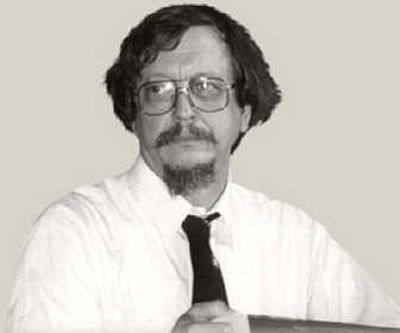Lectures to stress Christian foundation

When he was baptized into the Orthodox Christian Church 16 years ago, life was never the same for Dr. H. Tristram Engelhardt.
“That was a watershed moment in my life,” the renowned bioethicist and editor of “The Journal of Medicine and Philosophy” wrote in an e-mail. “With my baptism everything changed and I committed myself – proud and arrogant Texan that I am – to realize what it meant to die to myself and to put on Christ.”
His baptism not only influenced his work in medicine and moral theory, he said, but also transformed the way he approached the world. From that moment, he explained, Engelhardt made a commitment to treat everyone “within the context of Christian love – whether patients, students or anonymous strangers.”
Engelhardt, a philosophy professor at Rice University and professor emeritus in the Department of Medicine and Department of Community Medicine at Baylor College of Medicine, will talk about bioethics and share his perspective as an Orthodox Christian next week during several lectures in Spokane. The author of several books including “The Foundations of Christian Bioethics” will be speaking to doctors and others in the medical field, as well as to students, professors, Orthodox Christians and others in the region.
“He is both animated and ingenious, absolutely entertaining as well as challenging,” said the Rev. Michael Shanbour, pastor of Christ the Savior and the person who invited Engelhardt to come to Spokane. “I think going to Engelhardt’s talks can honestly be described as ‘transforming.’ It’s not often you can say that.”
Raised a Roman Catholic, Engelhardt started taking Orthodox Christianity seriously while consulting with various Catholic prelates, he said. “What happened from an intellectual point of view was the recognition that Roman Catholicism and the various Protestant faiths not only came into existence in the eighth century and later, but that their whole mind-set, their whole paradigm of theology and church life, was other than that of the original unbroken Christianity,” he wrote.
During his visit to Spokane, Engelhardt will discuss the differences between traditional Christianity and the views of morality that have prevailed in a “post-Christian, secular culture.” During a presentation at Gonzaga, the bioethicist will show how faith and reason, which framed the Western thought beginning in the 12th century, produced “an appreciation of theology radically at odds with that which subsequently became prominent in the Christian West.”
An understanding of morality is possible only with faith, according to Engelhardt.
“If one does not know that God exists, one will then act as if the universe comes from nowhere, goes to nowhere, and for no discernible ultimate purpose,” he wrote. “One will suffer a kind of ultimate disorientation. One will be lost in the cosmos … Without a proper orientation towards God, everything goes, at least to some extent, wide off the mark.”
Engelhardt, who is in his 60s, got a medical degree from Tulane University School of Medicine and his doctorate in philosophy from the University of Texas at Austin. In addition to teaching, Engelhardt is the editor of several publications including “Christian Bioethics.” His work ranges from continental philosophy and the history of medicine to the philosophy of medicine and bioethics.
“Medical ethics seems to be the issue that expresses the moral dilemmas of our times,” explained Shanbour. “It affects everyone. Whatever our spiritual or political leanings, we must be informed and able to articulate the issues. These are not ‘political’ issues … They are spiritual life and death issues, which are at the heart of our humanity.”
Reach reporter Virginia de Leon at (509) 459-5312 or virginiad@spokesman.com.